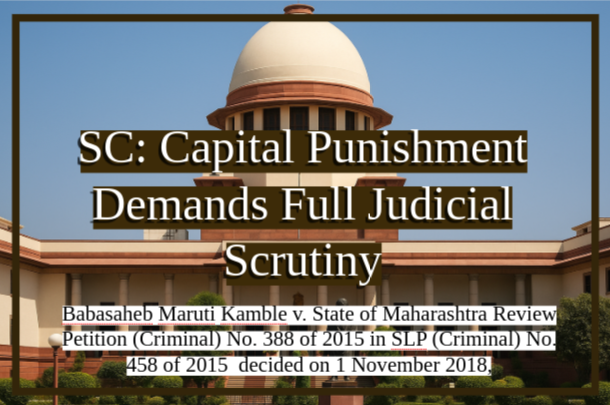Justice Delayed is Justice Denied: The Landmark Ruling in Anil Rai v. State of Bihar
- M.R Mishra

- Aug 26, 2025
- 2 min read
The case of Anil Rai v. State of Bihar (2001) stands as a monumental and deeply consequential judgment from the Supreme Court of India, one that transcends its immediate criminal facts to deliver a searing indictment of a systemic failure within the Indian judiciary: the chronic and often egregious delay in pronouncing judgments long after arguments have concluded.
What's The Matter?
The matter arose from a tragic incident where nine individuals were convicted for murder by a sessions court in 1991; their appeals languished in the Patna High Court for years, were finally heard in 1995, and then endured an unconscionable two-year period of judicial silence before a verdict was finally delivered in 1997 a delay during which one appellant died in custody, and the fundamental right to a speedy trial for the others was rendered a hollow promise.
Justices K.T. Thomas and R.P. Sethi, in a powerful and self-reflective opinion, identified this not as an isolated incident but as the tip of the iceberg, warning that such delays strike at the very heart of Article 21 of the Constitution, which guarantees not just life and liberty but a fair and reasonably quick procedure.
The Court passionately argued that justice delayed is justice denied, but justice withheld as in these cases where judgments are reserved indefinitely is even worse, as it fosters cynicism and erodes public confidence in the entire judicial institution.
To combat this, the judgment moved beyond mere admonishment to prescribe a comprehensive set of mandatory guidelines, creating a framework of accountability: requiring courts to record dates of reservation and pronouncement, mandating monthly reviews of pending judgments by court officers, instructing Chief Justices to confidentially remind benches of delays exceeding two months, and, most significantly, empowering litigants themselves to apply for expedited judgment after three months and for case withdrawal and reassignment to a new bench after six months.
On the substantive criminal side, the Court meticulously reviewed the evidence, upholding the convictions of the principal accused based on cogent eyewitness testimony and weapon recovery, but demonstrating judicial nuance by reducing the charges for others from murder under Section 302/149 of the IPC to rioting with deadly weapons under Section 148, finding the common object to murder was not proven for all.
In a final act of grace, the Court extended this benefit even to a co-accused who had not appealed, underscoring its commitment to substantive justice over procedural technicality.






Comments